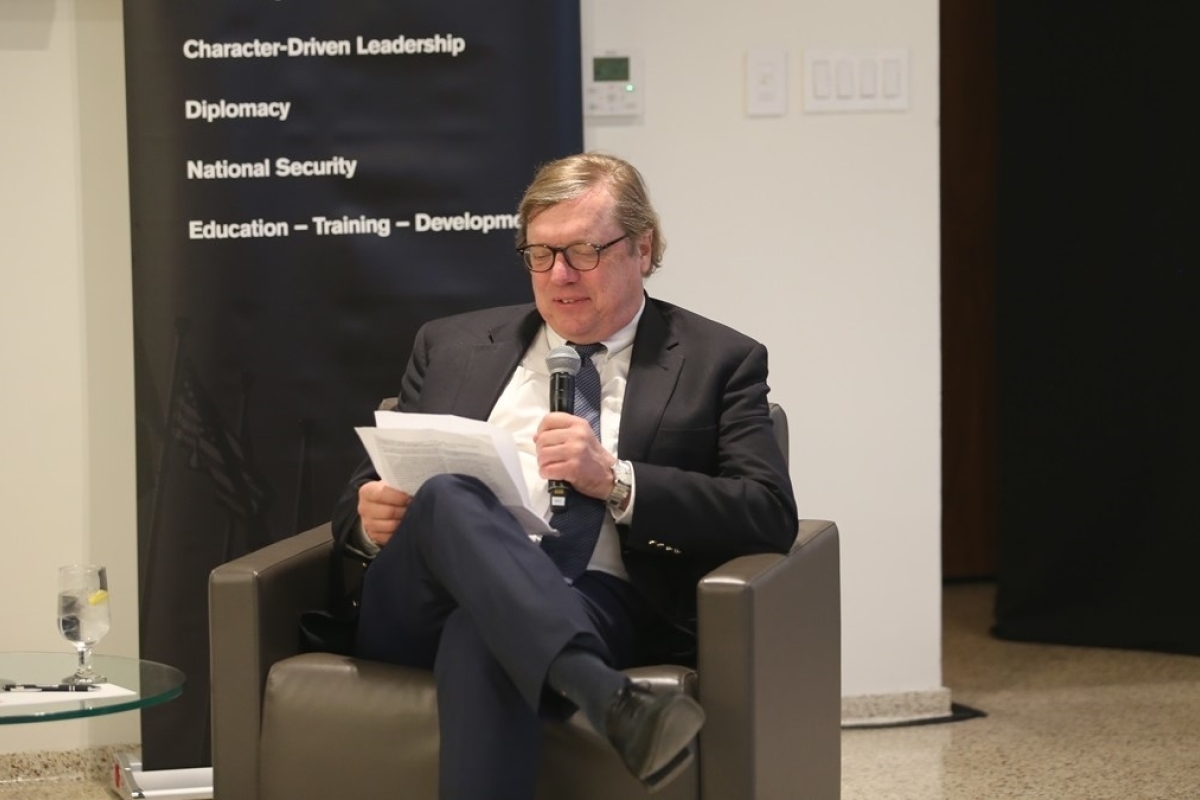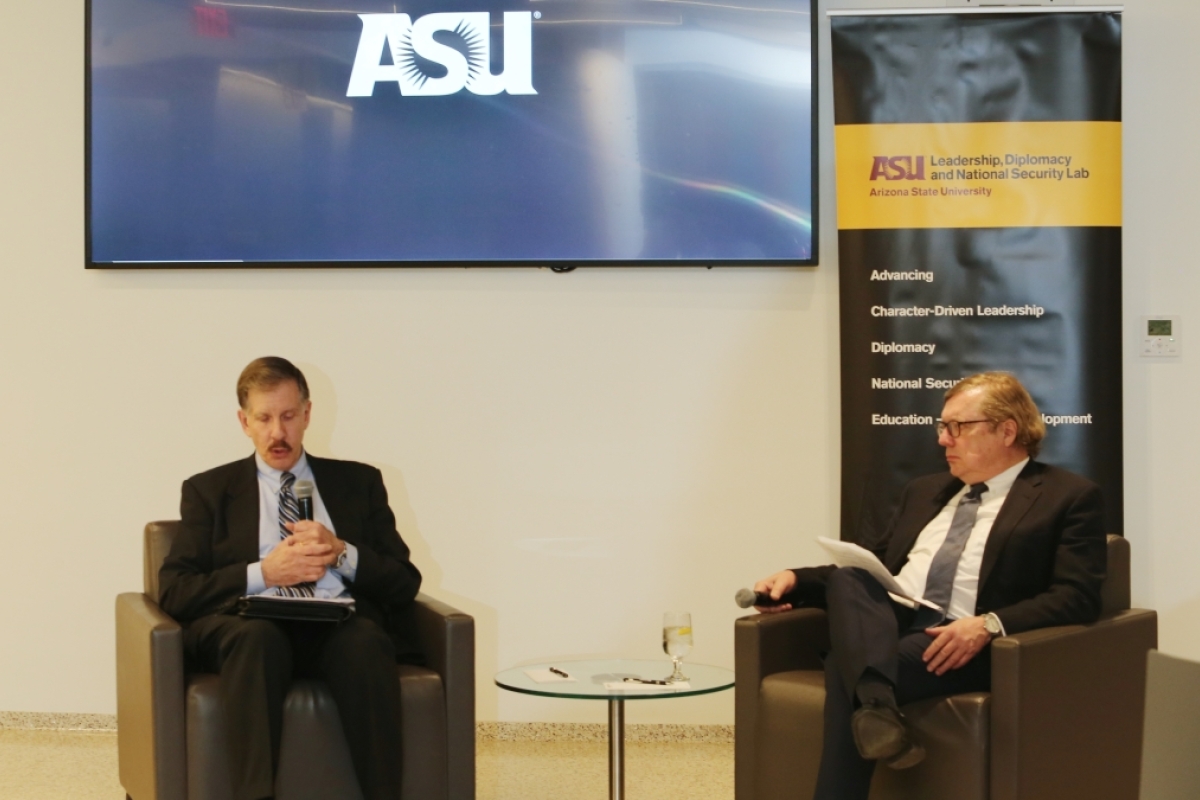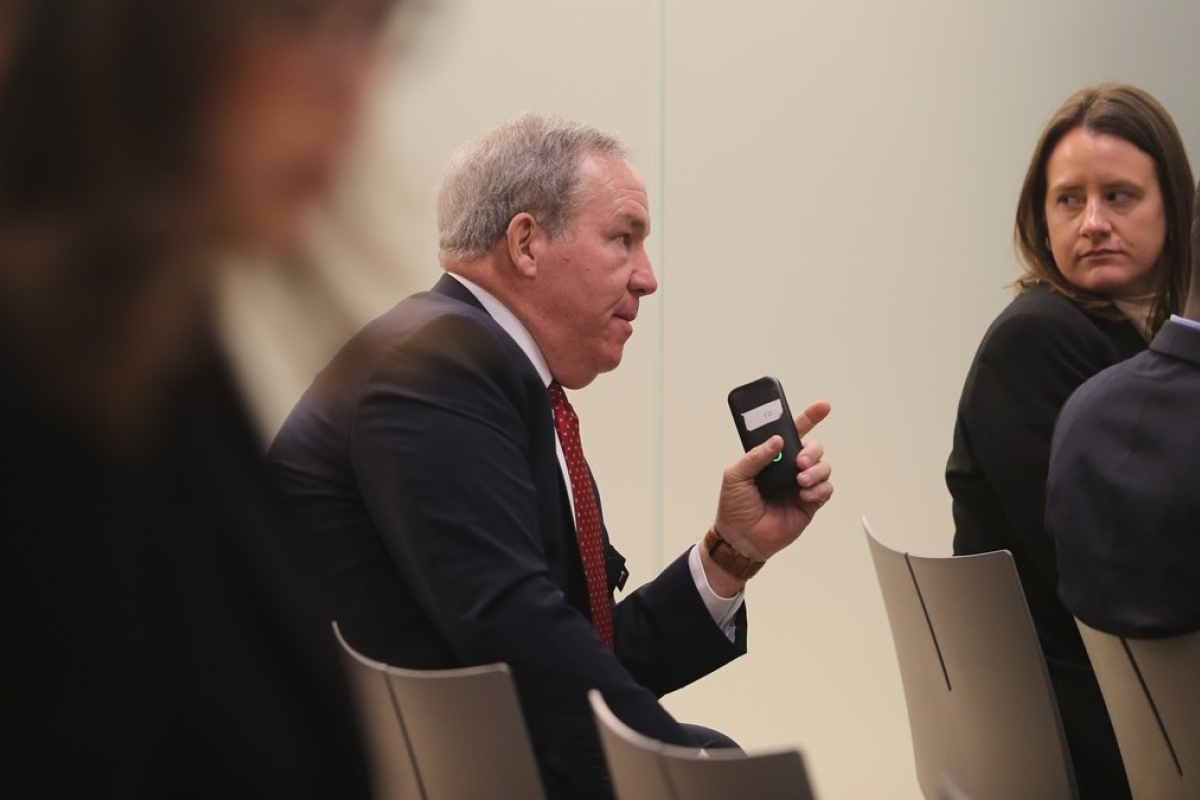Retired 'Nazi hunter' on international law as deterrence against war crimes
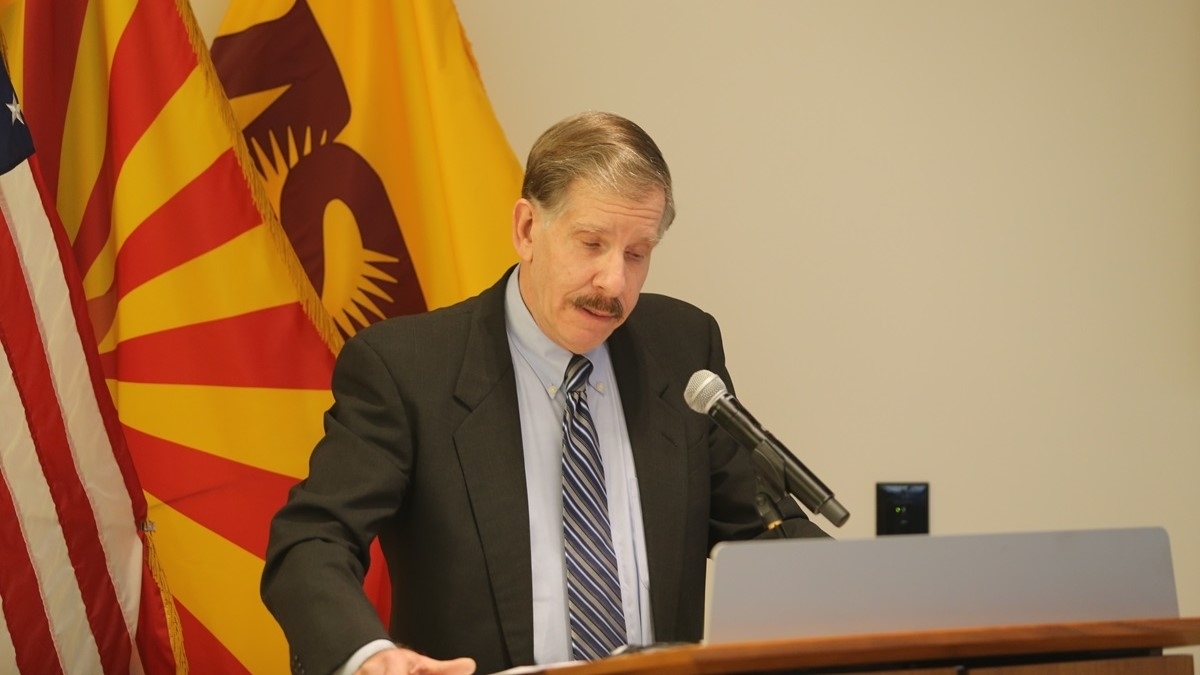
Eli Rosenbaum, top “Nazi hunter” and former director of the United States Department of Justice’s Office of Special Investigations, discusses law as a deterrent against international crimes, including genocide, war crimes, crimes against humanity, and torture. Photo courtesy Hager Sharp
When it comes to using international law as a deterrent to protect the national security of the United States, is all hope lost?
The answer, according to Eli Rosenbaum — a decorated World War II Nazi hunter — is no.
Eli Rosenbaum spent nearly 40 years investigating and prosecuting human rights violators with the United States Department of Justice. On Feb. 8, Rosenbaum joined Ambassador David J. Scheffer from the ASU Leadership, Diplomacy and National Security Lab in Washington, D.C., to discuss Rosenbaum’s opinions on deterrence based on his life-long experience.
Watch the lecture
Watch the full lecture on the Leadership, Diplomacy and National Security Lab's YouTube channel.
“Although deterrence — along with punishment, and protecting society through incarceration and rehabilitation — are the principal goals of law enforcement everywhere, it’s traditionally been very difficult to prove the extent to which law enforcement yields deterrence,” Rosenbaum said. “But it's generally accepted that some significant level of deterrence is achieved when the pursuit of justice strengthens the perception of would-be criminals of the likelihood of being caught and punished.”
From Rosenbaum’s point of view, there are four main priorities for strengthening the role of international law as a deterrent force:
1. Increasing efforts to investigate and prosecute, which will require “expanding international cooperation and increasing the financial and human resources made available for the work.”
2. Completing the “statutory tool chest” domestically in some countries.
3. Supporting the work of legal scholars and nongovernmental organizations.
4. Strengthening what Rosenbaum refers to as “international administrative law.”
According to Rosenbaum, deterrents outside of the law — including diplomacy, public warnings, national government sanctions, reporting from journalists and NGOs, and the implicit or explicit threat of military force — still hold extreme importance.
“The foundation exists to bolster the power of criminal law to deter international crimes, but there's much work that remains to be done,” Rosenbaum said. “When one considers that those crimes include the worst offenses known to humankind, and that their continued perpetration threatens world peace and security and countless lives — time is of the essence.”
From prosecuting World War II Nazis to Rwandan génocidaires of human rights, Rosenbaum has won more cases against war criminals than any other country’s government of the world combined.
Most recently, Rosenbaum was appointed by U.S. Attorney General Merrick Garland as the Department of Justice’s first-ever Counselor for War Crimes Accountability for the War Crimes Accountability Team (WarCAT) in relation to crimes committed by Russia against Ukraine. The United States is the first and only national jurisdiction, other than Ukraine, to prosecute Russian war criminals. Rosenbaum’s efforts in the role led to him being awarded the Order of Merit from Ukrainian President Volodymyr Zelenskyy in September 2023. Rosenbaum has since retired from the role.
After the close of Rosenbaum’s remarks, attendees were permitted to ask questions.
In response to Ambassador Scheffer’s question on Rosenbaum’s most difficult case, Rosenbaum shared the story of John Demjanjuk, a concentration camp guard during World War II. In Demjanjuk’s case — like many of the cases from World War II — Rosenbaum and his team were battling time to prosecute Demjanjuk before he passed away.
“We were racing against the grim reaper,” Rosenbaum said. “For once, the grim reaper lost.”
More Law, journalism and politics
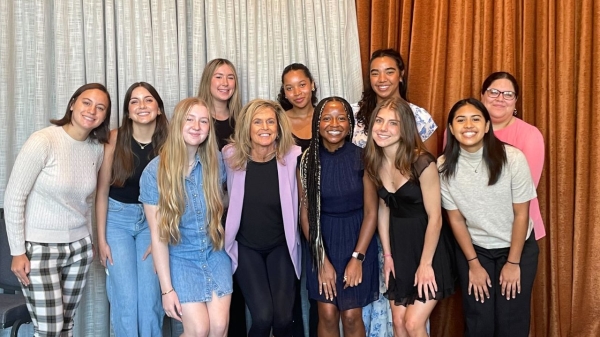
Cronkite School launches Women Leaders in Sports Media live-learn program
Women in a new sports media program at Arizona State University got a solid game plan from a sports veteran at an Aug. 20 welcome event.“Be humble, be consistent and be a solver,” Charli Turner…

ASU center to host the Pursuits of Education and Excellence Symposium
The Center for the Study of Race and Democracy (CSRD) at Arizona State University is introducing the Pursuits of Education and Excellence Symposium as part of an ongoing initiative to commemorate the…
ASU journalism students dominate NATAS Student Production Award nominations
Students at Arizona State University’s Walter Cronkite School of Journalism and Mass Communication dominated the nominations field of the prestigious Rocky Mountain Southwest Chapter of the National…
